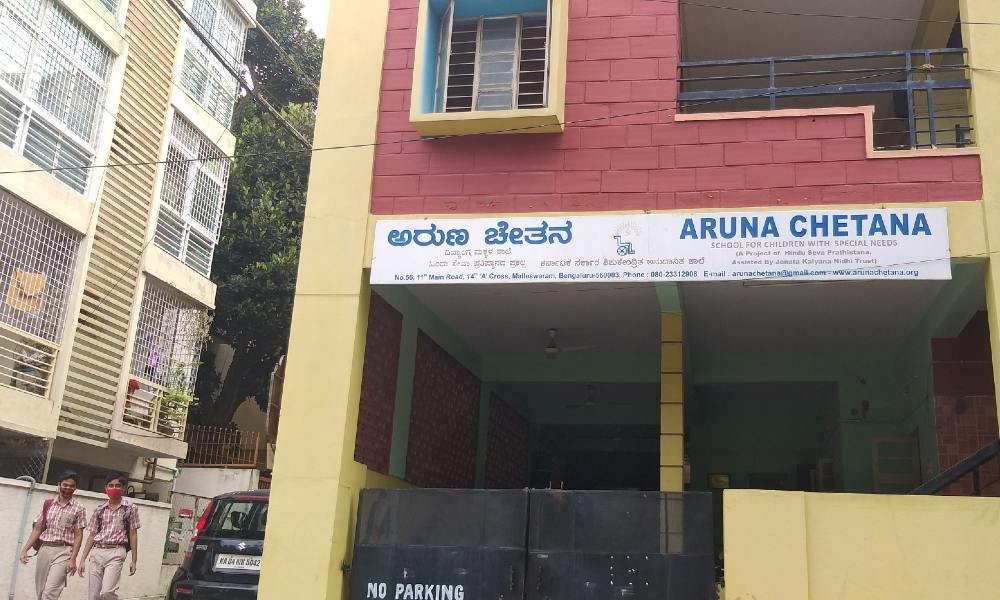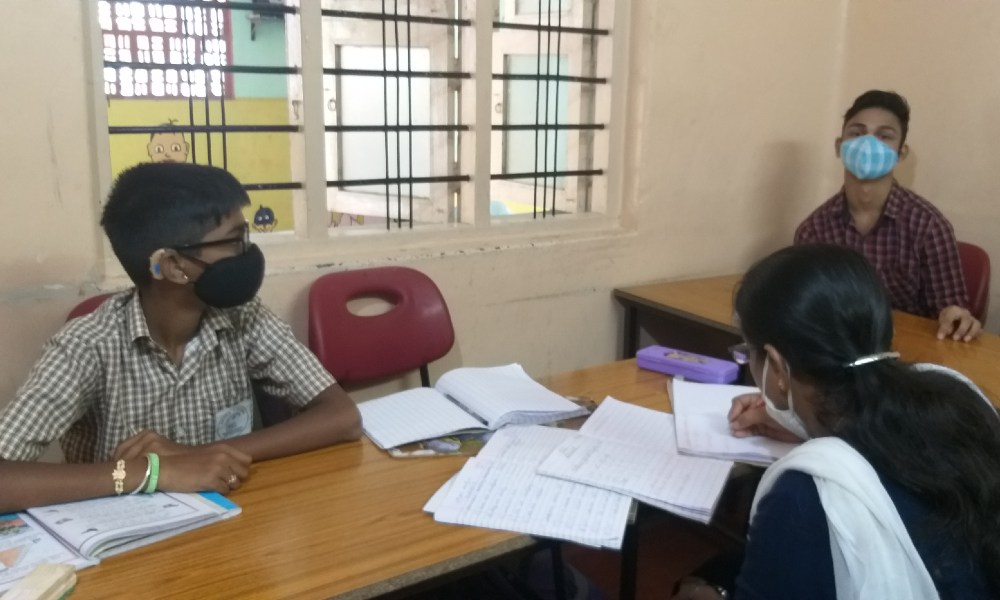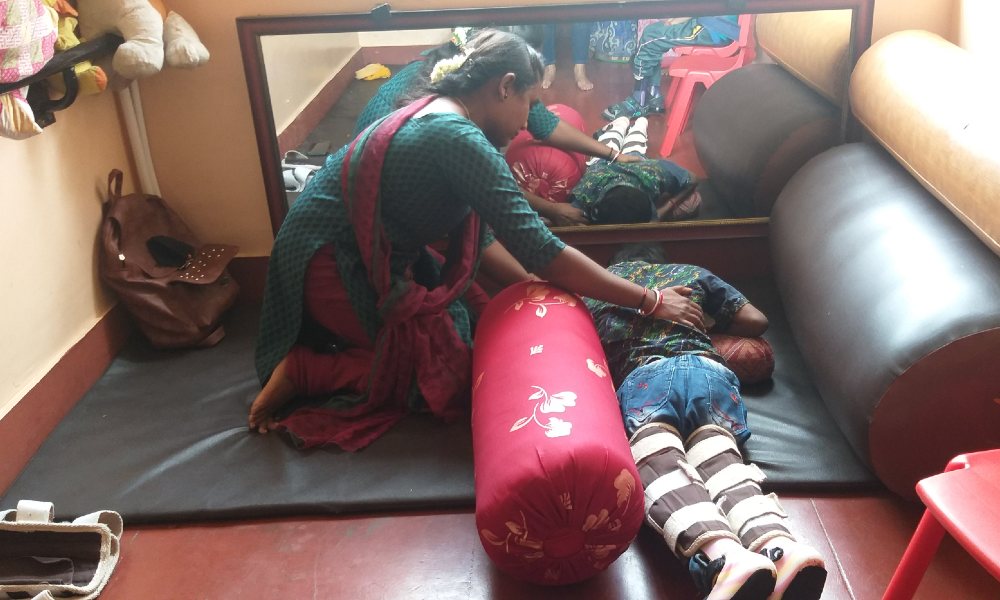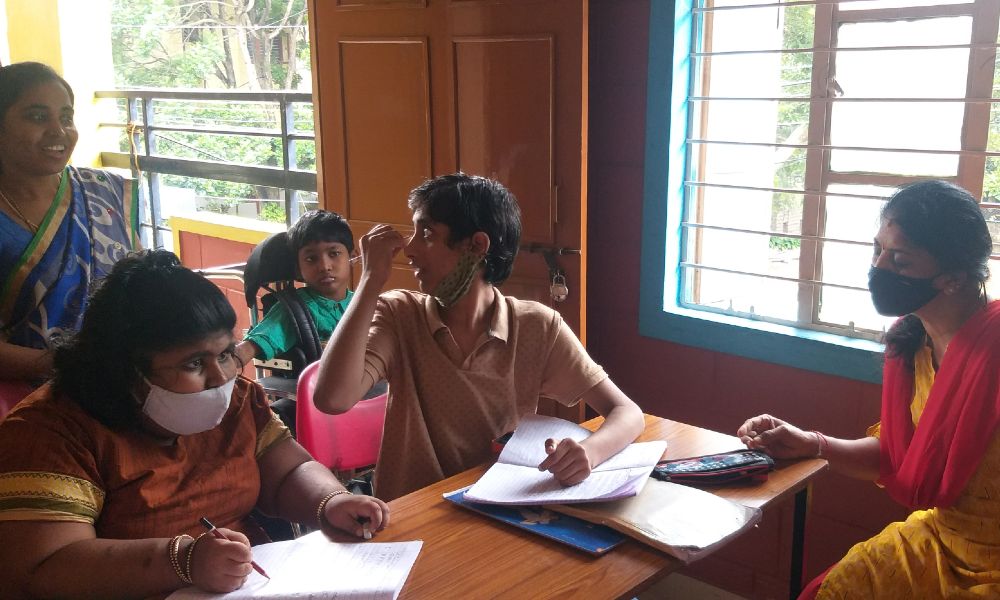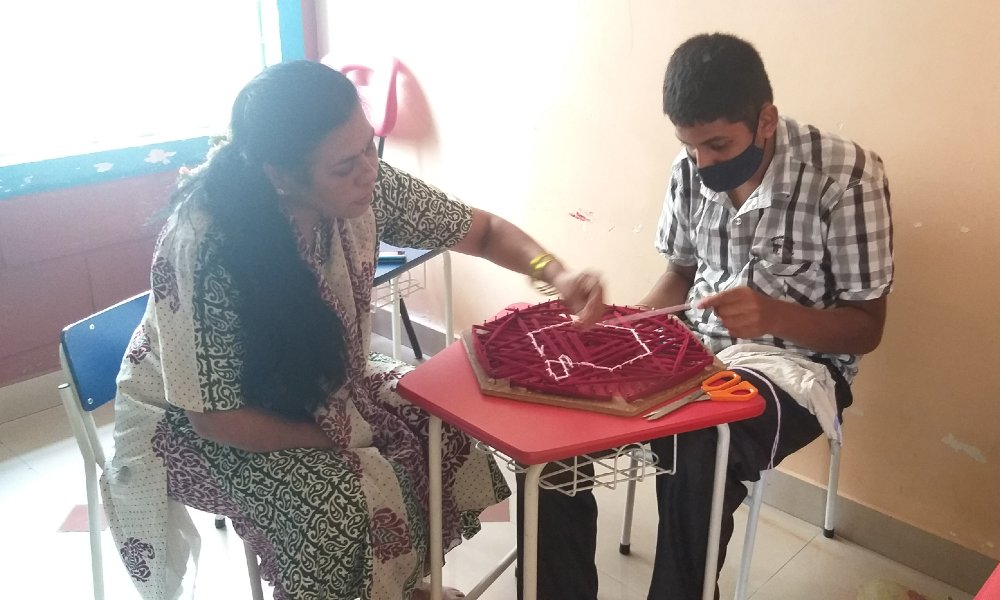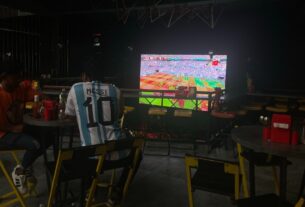Some special schools have not opened yet. Online education is mostly ineffective for special schools, as they need in-person therapies and activities.
Education of children with special needs has been significantly affected as essential activities like speech therapy and physiotherapy stopped when schools were shut. This has affected their growth, said schools and experts.
While non-special schools and colleges shifted to online education, special schools did not have that option. “Online education was never entertained,” said Krishnaraja Marakini, Founder-President, Buddhi Special School. “When the school was shut during the pandemic, speech therapy and physiotherapy stopped as the visiting faculty, psychologists, physiotherapists and speech therapists who used to visit weekly were not able to visit the school,” he said. “For parents, their children are now unmanageable because they have turned violent. Without proper guidance, their behavior has gone for a toss and their growth has gone back two to three years,” he added.
“Students are looked after by teachers with special training since parents are not equipped with the required skills. Hence, when students returned after the lockdown was lifted, they showed significant behavior changes. It is a challenge to make them feel comfortable in the school environment again,” he added.
Chikkalakshmma, a special educator at Aruna Chetana School and mother of Padmarajan, a student at the same school, said that her son has cerebral palsy. Since his physiotherapy sessions have stopped, he has been struggling to stand or walk on his own, she said. “Being a parent, I have a dream for him. Maybe it will just stay a dream. He has the capability to lead an independent life but during these times it is challenging and we need to push him further for physiotherapy,” she added. “Hydrotherapy, ecotherapy and development sessions for socialization and cognitive skills were conducted in Cubbon park and Lalbagh but since the pandemic, all such activities have stopped,” she added.
She said that online education couldn’t help children with special needs because they used to just look at the visuals and did not understand what the teacher was explaining.
A report by the Rajya Sabha mentioned that the government has come up with audio books and videos in sign languages for children with special needs.
“However, for students with cerebral palsy, learning through videos in sign language doesn’t help as their motor disability does not allow them to practice the signs,” said Gayathri Panju, principal at Aruna Chetana School.
“Moreover, the government has not provided any sort of help and the school has been managing everything on its own depending on the needs of children,” she added. She said that educating these children has been tough owing to their lower attention span and loss of memory.
In an article at the Indian Journal of Psychiatry, it is mentioned that the Comprehensive Disability Inclusive Guidelines for protection and safety of persons with disabilities during Covid-19 have not considered the educational needs of specially-abled children.
Gayatri Swaminathan, a clinical psychologist said, “Early intervention programmes at the age of five to seven years are really essential for children with special needs as it is the time when they start realizing their best potential. If that is missing, it gets hard to make up for later.”
Online education creates problems for such students as their education requires equipment that would beat the developmental challenges a kid is facing, she added. For kids with low Intelligence Quotient (IQ), sorting toys based on colors and shapes can be taught through stimulation activities only in person, she further said.
“Moreover, the Picture Exchange Communication System (PECS) through flash cards can help in educating children with autism. For visually-impaired children, Braille flashcards are required and since such equipment is not available at home and parents do not understand how to use them, education for children with special needs gets really problematic,” she added.
Online education gets really challenging for children who are hyperactive, said MC Ramesh, General Secretary, Vidyaranya, a non-governmental organization (NGO) for disabled children. Apart from challenges like lack of devices and internet facilities, educators have not been able to conduct sessions for Daily Living Skills (DLS) where students are taught basic actions on how to wear clothes, comb their hair, use the washroom and take a bath. Physical therapies along with cultural functions and indoor/outdoor activities were conducted by the NGO earlier. But during these times, absence of such sessions has led to behavioral changes that have worsened children’s mental illness, he added.
Shanti Gnanaolivu, principal at Bethany Special School said that it has been challenging to teach the kids online and therapy sessions have been affected, but students have still benefited somehow. Something is still better than nothing,” she added.
“Occupational therapy was still conducted online for hyperactive students to work on their motor skills but parents had to be present to assist them,” she added.
“Since these children need a lot of attention and other psycho-social resources, their education was disturbed but at the same time parents have been figuring out ways to work around that,” said an associate professor at a government college in Bangalore.


